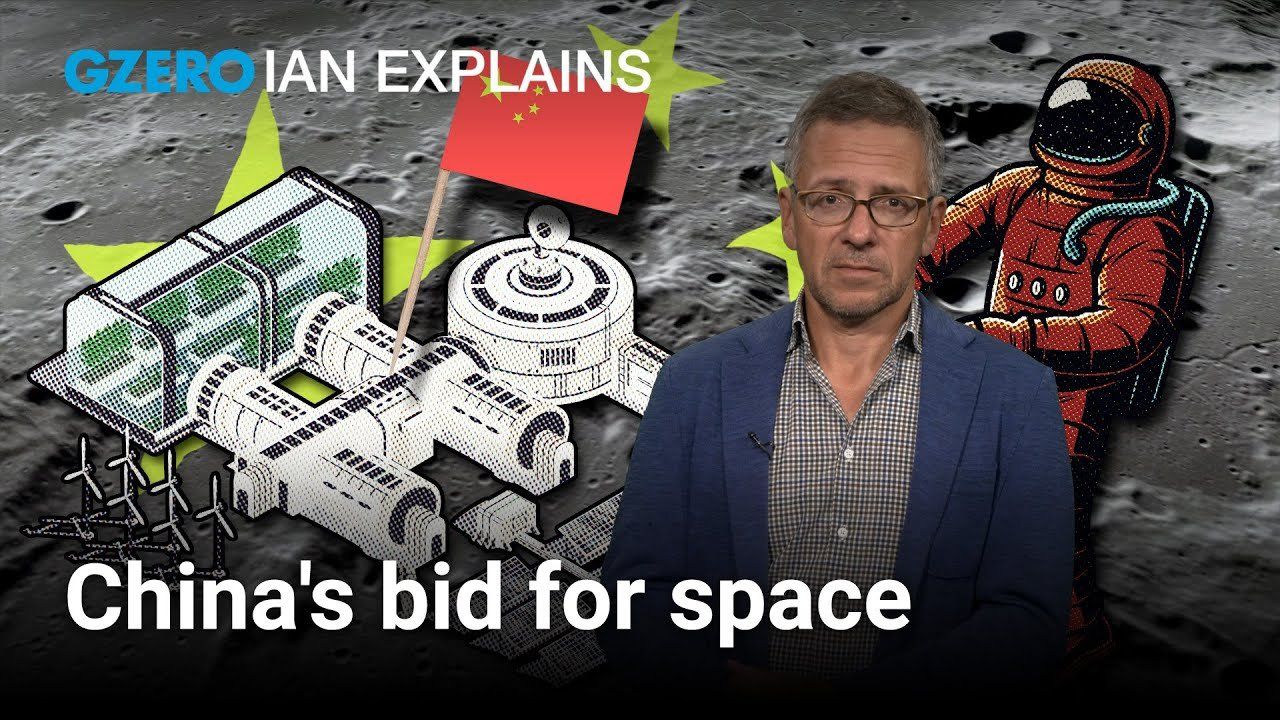
Are we in a 21st-century space race with China? And if so, who’s winning? On Ian Explains, Ian Bremmer breaks down China’s ambitious space program, which in the last few years has sent a rover to Mars, built a space station, and returned samples from the far side of the moon–something no country has done before. By 2035, it plans to build a lunar base with Russia on the moon’s south pole. However, intelligence experts are concerned China’s activity in space is more directly tied to its military than it’s letting on. A 1967 UN treaty bans military activity on the moon but not military activity in space altogether. The final frontier could be the next battleground. Can the US space program, boosted by private space companies like SpaceX and Blue Origin, counter China’s lunar ambitions? Is this the end of the post-Soviet era of international space cooperation? Ian Bremmer breaks down the astronomical stakes of the next era of space exploration.
Look for the full episode, with an interview with former astronaut Senator Mark Kelly on GZERO World with Ian Bremmer, airing on US public television (check local listings).
New digital episodes of GZERO World are released every Monday on YouTube. Don''t miss an episode: subscribe to GZERO's YouTube channel and turn on notifications (🔔).